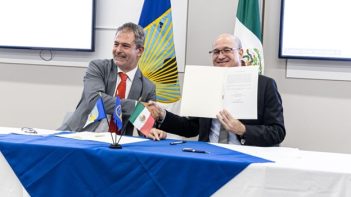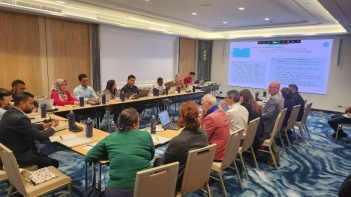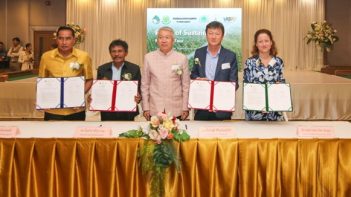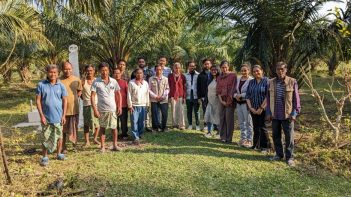As palm oil production increases in countries like Malaysia, Indonesia, and parts of Latin America and Africa, so does the occurrence of “land grabs” that negatively affect local people. Too often, land acquisition is carried out without the Free, Prior and Informed Consent (FPIC) of local communities, resulting in conflict. Now, RSPO’s FPIC Guide helps members to navigate the challenging area.
FPIC has been a central requirement for Roundtable on Sustainable Palm Oil (RSPO) members since it was adopted as a key principle in the Principles and Criteria (P&C) in 2005. It ensures a level playing field between communities and government or corporations, as the latter will have to abide by communities’ customary laws before oil palm, forestry or other businesses can be established on their land. The negotiations should proceed without any coercion between investors or government and the indigenous community.
Since it is an integral part of RSPO’s P&C, the principles of FPIC conform to international human rights laws and their application implies more thorough impact assessments, project designs and benefit-sharing agreements.
As a result, FPIC establishes equitable agreements between local communities and companies (and governments) using methods that don’t compromise the legal and customary rights of indigenous. It also ensures that local rights-holders benefit fairly from the agreement. The negotiated agreements, in return, provide added security and lower investment risks for the companies involved.
The RSPO, with assistance from the Forest People’s Programme, developed a guideline in 2008 for companies to raise awareness on the concept of FPIC and its importance for social performance.
However, with new requirements added to the P&C in 2013, the Board of Governors assigned the RSPO Human Rights Working Group (HRWG), to make revisions to the FPIC in accordance to the new requirements and wider experiences with FPIC in other sectors.
This revised Guide has been elaborated based on:
- lessons learned from field experiences by the companies
- current tools used to monitor effectiveness of ESIA and FPIC
- newly adopted Standard Operating Procedures and Policies
- community experiences as documented in case studies and independent reviews
- submissions to the Complaints Panel
- lessons from audits.
Particular attention is paid to the need for clear guidance on community representation, respecting community decision-making, participatory mapping, gender equity, securing livelihoods and identifying customary lands and dealing with divergent notions of land rights. The revision process of the FPIC Guide involved a wide range of stakeholders, most particularly community spokespersons, producer companies and auditors.
Drawing on the inputs from two multi-stakeholder workshops held in Kuala Lumpur and Jakarta in June and July 2014, with participation of company personnel, community representatives, auditors and local NGOs, the revised FPIC Guide for RSPO Members (2015) was endorsed by the RSPO Board of Governors and came into force with immediate effect.
The Free, Prior and Informed Consent Guide for RSPO Members (2015) is available for download here.
Keep reading

Prolade Secures US$15 Million Financing from IDB for Sustainable Palm Oil Production
Call for Expression of Interest: Independent Verifier for the Implementation of Respondent’s Action Plan

RSPO Impact Report 2024

Assurance Standing Committee Drives RSPO's Vision for Sustainable and Equitable Palm Oil:ASC Highlights, Second Half of 2024

Thai Palm Oil Mills Association Announces Support for Thai Oil Palm Farmers to Achieve RSPO Global Sustainability Standards
Transition Period from PalmTrace to prisma
Report on Independent Review of RSPO Labour Auditing Guidance (LAG)

Thank you to all RT2024 sponsors!




